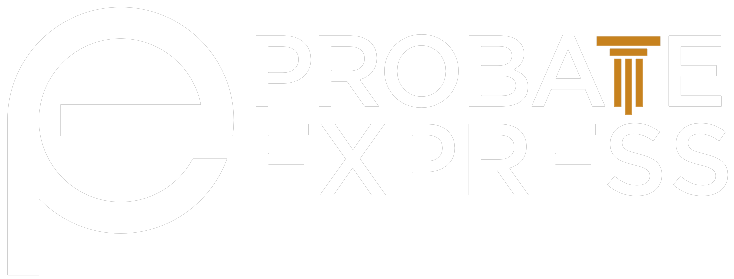Are you a homeowner facing foreclosure and feeling hopeless about your financial situation?
Do you believe that all doors have been shut, and there is no way out?
If so, then you need to know about loan modification, a government-sponsored program designed to help struggling homeowners like you keep their homes.
Foreclosure can be a traumatic experience for anyone, but with loan modification, you can avoid it and keep your home. So, if you’re one of the millions of homeowners struggling to make ends meet, read on to find out what loan modification is and how it can help you.
What is Loan Modification?
Loan modification is a process that allows homeowners to change the terms of their mortgage to make their monthly payments more affordable.
This process typically involves reducing the interest rate, extending the loan term, or changing the type of loan. The goal of loan modification is to make it possible for homeowners to keep their homes and avoid foreclosure.
Why Loan Modification Can be A Good Option for Struggling Homeowners?
Loan modification offers several benefits for struggling homeowners, including:
- Lower Monthly Payments: One of the main benefits of loan modification is that it can lower your monthly mortgage payment. This makes it easier for you to keep up with your mortgage payments and avoid foreclosure.
- Avoid Foreclosure: Foreclosure can have a long-lasting impact on your credit and financial situation. By participating in loan modification, you can avoid foreclosure and keep your home.
- Opportunity to Refinance: Loan modification can buy you time if and provide you with the opportunity to refinance your mortgage (if that’s your plan), which can help you save money over the long-term.
- Protects Your Investment: Your home is likely one of the largest investments you will ever make. By participating in loan modification, you can protect this investment and avoid losing it to foreclosure.
- Maintains Homeownership: Owning a home is a dream for many people, and loan modification can help you maintain homeownership and avoid losing your home to foreclosure.
How to Apply for Loan Modification?
The process of applying for loan modification can be complex and time-consuming, but it is worth it if you want to keep your home.
Here are the steps you need to follow to apply for loan modification:
- Contact Your Lender: The first step in applying for loan modification is to contact your lender and let them know that you are struggling to make your mortgage payments. They will be able to provide you with information on the loan modification process and what you need to do to apply.
- Gather Documentation: You will need to gather documentation to prove that you are facing a financial hardship and unable to make your mortgage payments. This may include pay stubs, bank statements, tax returns, and other financial documents.
- Complete a Loan Modification Application: Once you have gathered all of the required documentation, you will need to complete a loan modification application and submit it to your lender.
- Work with Your Lender: After you have submitted your loan modification application, you will need to work with your lender to complete the process. They will review your application and financial information, and they may ask you to provide additional documentation.
- Wait for a Decision: Once your lender has reviewed your loan modification application, they will make a decision on whether or not to approve it. This process can take several weeks or even months, so be patient and stay in communication with your lender throughout the process.
But be aware…
Here’s an interesting statistic — At least 8 out of 10 people who applied for the loan modification themselves got rejected. And the reason is something that has to do with mostly paperwork filing.
So it’s highly recommended to speak to a foreclosure specialist or a loan mod specialist.
A foreclosure specialist (such as myself) is an actual certificated professional qualified by the NAR | National Association of Realtors–so ask for the certification if someone claims such designation.
However, one doesn’t need any type of certification to call himself a loan specialist. So keep that in mind!!
Based on regulations, no one can charge you upfront for the loan modification service (at least that is the case in California). So definitely be on the err side if someone does.
Common Misconceptions about Loan Modification
Despite the benefits of loan modification, there are still many misconceptions about this program that prevent homeowners from taking advantage of it.
Here are some of the most common misconceptions about loan modification, and why they are not true:
- Loan modification is only for people with good credit: This is not true. Loan modification is available to homeowners regardless of their credit score. As long as you can prove that you are facing a financial hardship and unable to make your mortgage payments, you may be eligible for loan modification.
- Loan modification will ruin my credit: Participating in loan modification will not ruin your credit. In fact, it can actually help you avoid foreclosure, which can have a much more significant impact on your credit.
- Loan modification is a scam: Loan modification is a government-sponsored program designed to help struggling homeowners avoid foreclosure. While there are some scams out there that claim to offer loan modification services, it is important to work with your lender directly and be cautious of any companies that ask for upfront fees.
Personal Take
Loan modification is a valuable option for struggling homeowners who want to avoid foreclosure and keep their homes.
If you are facing financial hardship and unable to make your mortgage payments, don’t give up hope.
Contact your lender and explore your loan modification options today. With the right information, support, and determination, you can get back on track for a better day.
By no mean that this is an extensive article on all matters regarding loan modification.
“Should you do a loan modification even if you were qualified?”; –“Would loan modification be the ideal option or should I liquidate– sell the property, with the current market?”;– “Would I still be qualified for loan mod if I only get back to making income after a year or two unemployed due to Covid?”; –“Is there any trick to quickly determine my change of being rejected with loan mod so I don’t have to waste my precious time before the trustee sale date?”; –“Would my penalty and payments still be accrued during the loan mod application process?”….
I’ll discuss these on my blogs in very near future. So be on the look out!
(Might be there already)
Thanks for checking this article out! Stay awesome! Until next time…



